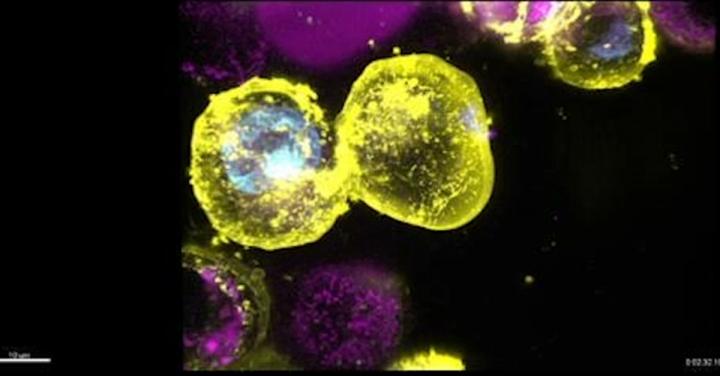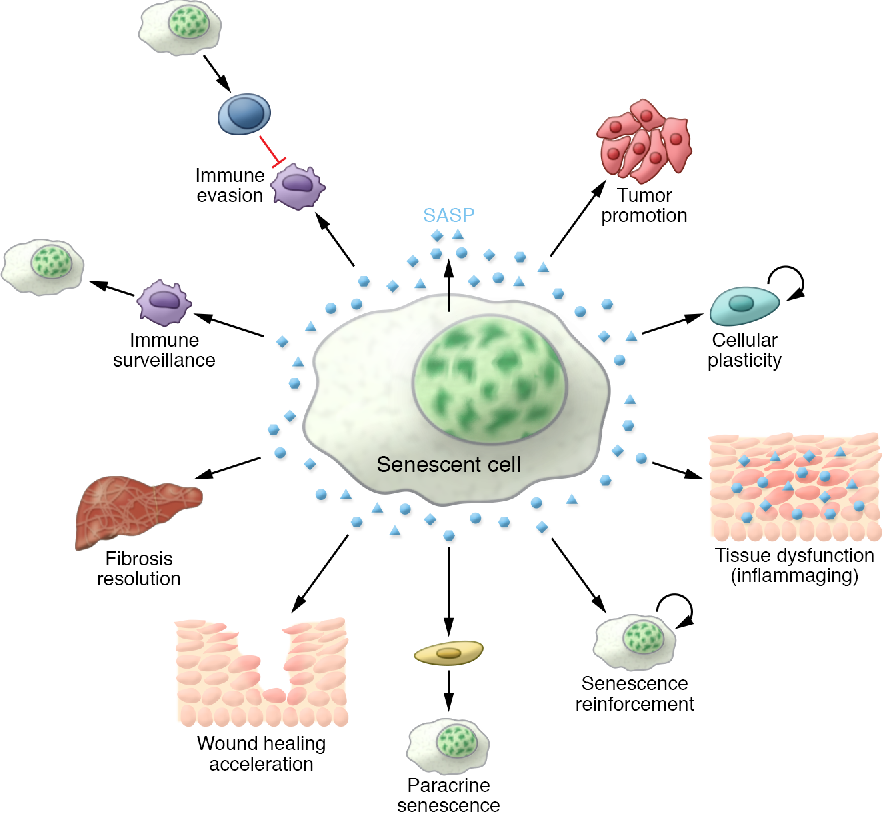Cellular Senescence: Understanding an Antagonistic Hallmark of Aging
Dietary supplements such as NMN and resveratrol have also shown promising results in improving autophagy and cellular recycling..

Introduction:
Aging is a natural process that we all go through at some point. As we age, our bodies undergo several physiological changes that contribute to a decline in health and increased risk for diseases. One of the primary hallmarks of aging is cellular senescence, which is the process where cells no longer function as they once did, leading to deterioration.

Understanding how cellular senescence occurs is essential to slow down the aging process and improve overall health. In this blog post, we'll explore what happens during a proper programmed cell life cycle, causes of cellular senescence, how cells are usually recycled or destroyed, and how cellular senescence causes oxidative damage to healthy cells. We'll also introduce two cutting-edge preventative therapies and two dietary supplements that promise to improve autophagy and cellular recycling to slow down the aging process.
Mitosis is a process of cell duplication, in which one cell divides into two genetically identical daughter cells. In the various stages of mitosis, the cell’s chromosomes are copied and then distributed equally between the two new nuclei of the daughter cells.
Proper Cell Life Cycle:

To fully understand cellular senescence, it's essential to know the usual conditions of a proper cell life cycle. During a normal cell cycle, a cell undergoes four critical stages: G1 or Gap 1, S or Synthesis, G2 or Gap 2, and M or Mitosis. In the G1 stage, cells grow, develop, and synthesize proteins. In the S phase, cells synthesize DNA, ensuring that the genetic material is replicated correctly. During the G2 phase, cells prepare for cell division, ensuring that everything is in place before the cell divides. Finally, during Mitosis, the cell divides into two identical daughter cells.
Causes of Cellular Senescence
Cellular senescence can be caused by many factors such as genetic factors, environmental factors, and oxidative stress. As we age, cells are exposed to an increased level of oxidative stress due to the free radicals in our bodies. Free radicals can cause damage to our cells and DNA, which can prevent cells from functioning correctly. This damage can lead to cellular senescence, which means the cells are no longer able to divide, causing the body to function less efficiently and contributing to aging.
Cell Recyling and Oxidative Damage
Usually, when cells cannot function anymore, they are recycled or destroyed by the body's immune system. Additionally, healthy cells produce an antioxidant enzyme that helps counterbalance free radicals produced in the body and oxidative damage. This process helps cells function correctly and fight off potential cellular senescence. When the recycling process is disrupted, cells begin to accumulate, leading to chronic inflammation and tissue damage.
New Cutting-Edge Preventative Therapies and Dietary Supplements
One preventative therapy that has shown promising results for slowing cellular senescence is autophagy, which is the process of recycling damaged cells and proteins. Autophagy promotes cell recycling and helps keep cells healthy. A clinical study conducted in 2015 showed that subjects who fasted for three days experienced increased levels of autophagy, which can potentially lead to a slower aging process. Another study conducted in 2019, involving mice, showed that a drug that can activate autophagy could reverse aging-related hair loss.
Dietary supplements such as NMN and resveratrol have also shown promising results in improving autophagy and cellular recycling. A study conducted in 2016 showed that NMN in mice's diets improved age-related declines in blood flow to muscles. Resveratrol has also shown beneficial effects in delaying the onset of age-related diseases such as diabetes and cancer.
Conclusion:
Cellular senescence is a primary hallmark of aging that can contribute to deterioration and an increased risk for age-related diseases. Understanding how cells normally function and how oxidative stress can disrupt the process can help us slow down the aging process. Introducing cutting-edge preventative therapies and dietary supplements can help improve autophagy and cell recycling, leading to better overall health. While there's still much to learn about cellular senescence and aging, it's essential to embrace a healthy lifestyle and try new ways to stay healthy and active as we age.




